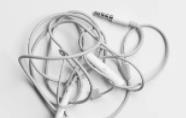Accused of losing its technological advantage, Samsung will actively improve the competitiveness of the chip business
In April, a junior engineer on Samsung's chip technology development team sent a letter to the company's leadership, saying that Samsung's R&D staff was under enormous time pressure to meet "impossible" targets in new technology and product development. At the same time, a sense of "frustration" pervaded the entire organization. It seems that the top decision makers are unable to get to the root cause of the problem," he says. I've heard a lot of 'crisis' stories, but I think this is a more dangerous time than ever."
SemiAnalysis principal analyst Dylan Patel (Dylan Patel) wrote in a recent research report: "For chip design companies and foundries, culture is the key to success. These talented engineers need the right motivation, direction and leadership." He attributed Samsung's problems to a "toxic" culture that has led to different business units blaming each other "in the face of mistakes" for Samsung's non-storage chip business.
According to market research firm Strategy Analytics, Samsung's share of the smartphone application processor market has dropped by almost half since 2019, ranking fourth last year with a 6.6 percent share. By comparison, Qualcomm had a 37.7 percent share, MediaTek 26.3 percent and Apple 26 percent. Patel noted: "Samsung's technology advantage is disintegrating. Samsung is slipping in every aspect of technology development, including the one area where it used to beat all of its competitors: DRAM."
Samsung posted a lower-than-expected operating profit for the second quarter of 2022 as inflation dampened consumer demand for electronic devices. And Samsung has been hit by rising global raw material prices that are impacting demand after the new coronavirus outbreak that has driven the tech industry on a wild goose chase for the past two years.
But Samsung executives argued that the company's storage business still has a technological advantage over its competitors. The company introduced extreme ultraviolet lithography faster in memory chip production, while Samsung dominates the DRAM market with a share of about 40 percent. Kang Moon-soo, vice president of Samsung's chip foundry business, said market fears of losing key customers were "overblown. He told analysts in April that Samsung has accumulated orders for the next five years equivalent to eight times the revenue of last year's chip foundry business.
Analysts pointed out that TSMC is advancing at a faster pace in the mass production of 4-nanometer and 5-nanometer chips, affecting Samsung's ability to produce enough cutting-edge chips for its most important customers. But Samsung said that the company is now capable of steadily advancing chip production to achieve the "maximum" supply of chips. A Samsung executive told analysts last Thursday that the company is "restructuring" the chip design business to enhance its long-term competitiveness.
Earlier last week, Samsung held a ceremony to celebrate the first shipments of 3-nanometer chips. In the 3-nanometer process, Samsung beat TSMC, the first to bring the next-generation technology to market, Dalton Investment Company analyst James Lin (James Lin) said: "If Samsung can improve the output rate of the latest chips, it still has a chance to re-attract customers. No customer wants to take the risk of relying entirely on TSMC as a supplier."
Samsung also said that the company is working to create an "inclusive and challenging culture" through "open communication" with employees. And Samsung will continue to discuss with employees the company's vision and business direction.
Meanwhile, Samsung is now optimistic that Lee Jae-yong, the successor to the company's founding family, will be pardoned by South Korean President Yoon Seok-yeol next month. Lee was previously arrested and jailed for bribing the former South Korean president to secure his family's control of Samsung Electronics, but was granted parole last year. However, his work and business activities remain restricted, affecting his ability to manage the massive Samsung conglomerate. As per past practice, presidential pardons usually take place before South Korea's Independence Day in mid-August.
OTHER NEWS
-
- Despite the A15 chip, Apple iPhone 14 / Max will still get a performance boost
- By 3 Aug,2022

-
- Sony announced: PS VR2 virtual reality device in early 2023, only support PS5
- By 24 Aug,2022

-
- Sources say Apple's MR headset will be released in early 2023, and a second, lighter version with calling capabilities will be available in 2024
- By 18 Jul,2022

-
- Valuation of the company behind Stable Diffusion climbs to $6.9 billion, just one month after the project's launch
- By 13 Sep,2022

-
- Huawei Watch GT 3 Pro titanium strap models released: online WeChat watch version, 3388 yuan
- By 9 Sep,2022

-
- This robot can untangle a tangle of headphone cables in two clicks
- By 17 Aug,2022
